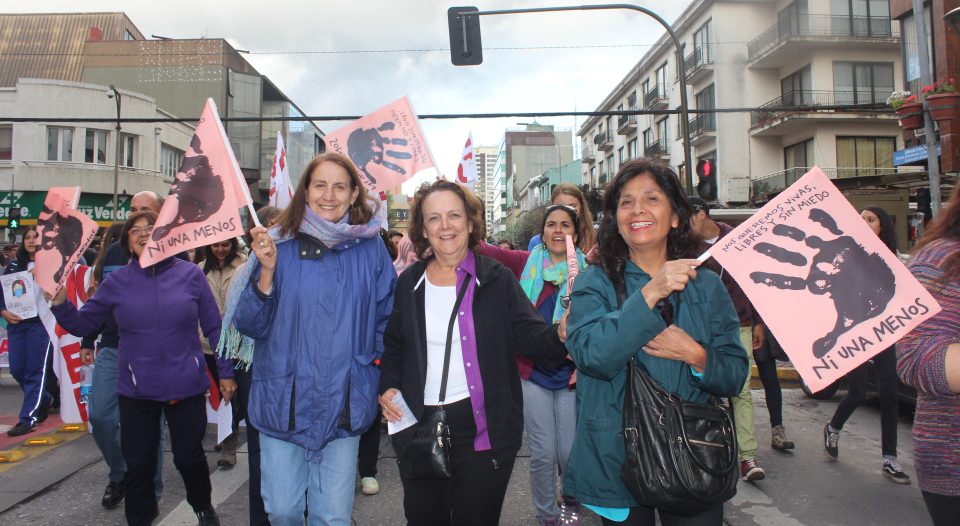When Karen Anderson volunteered as a medical missionary to Chile in 1981, she told her parents she would be back in a year. Forty-three years later, her home and heart are still in Chile.
Committed to walking alongside the people of Santiago, especially women, Anderson founded a community health organization called Educación Popular en Salud (EPES, meaning “Popular Health Education”). Today the ripples from this project travel generations.
Anderson reflected on this ministry as she prepared to retire and hand over the work of EPES to the women she has trained.
When Anderson arrived in Chile, she was tasked with training women to be community health workers. Though initially daunting, this ministry became her passion because of the spirit of the women she was teaching. Her shaky Spanish and lack of experience were no match for her love of the women she met. “They were so unbelievably tenacious and alive despite all of the suffering that they encountered,” she said.
Their fire caught in her, and EPES was born.
Advocating for the most vulnerable
EPES trains students, public officials, health and education workers, and women from vulnerable communities to advocate for the rights to health care and sustainable food, and to share their knowledge through workshops and community events. Its health promoters share information on topics such as nutrition, breast cancer prevention, HIV and AIDS, and violence against women.
Anderson began recruiting women from day care centers, which were tremendously important to the communities.
“When people join in the work together, we remember that we’re not alone. There’s hope in collective action.”
Her work was difficult and attracted the attention of the brutal dictatorship that ruled at the time. EPES advocated for Chile’s most vulnerable, which made them a threat. Anderson, her friends and her colleagues were followed, interrogated and harassed. One lost his life. Their work continued despite the unwanted attention and even outlasted it.
Anderson remembers what drove their mission and kept them focused: “Our work wasn’t trying to do anything but be a witness of the church.”
She also credits ELCA World Hunger for providing not only resources but also a model for how to operate in a community. “We have been blessed to work with an organization that asks questions first to understand the people and their need,” she said. “We followed their example.”
Changing lives and communities
As Anderson hands over the leadership of EPES, the fire the women lit in her still burns brightly as she speaks of what they mean to her. Perhaps closest to her heart is the story of the Garcia family.
The matriarch of the family, Valeria (last name withheld), was inspired by her training to finish high school in her 30s and then pursue a college degree. She took night classes using a scholarship from EPES while raising three young children and finished at the top of her class. Now her three daughters all have graduated from college and are engaged in work to better their community.
“In our own communities, in Chile, and all around the world, there are people just like the remarkable women I’ve worked with who are just waiting for an opportunity to be seen,” Anderson said. “Our challenge is to recognize them.”
As she reflects on her career, Anderson wants to remind the church of the hope we find in each other and our shared work. “If all people needed was food or a doctor, our job would be easy. But it’s so much more complicated than that,” she said. “It’s much harder to walk alongside the people who need more over many years, but this is the work that changes lives and communities.
“When people join in the work together, we remember that we’re not alone. There’s hope in collective action.”
To support ELCA ministries like this, go to elca.org/give.







